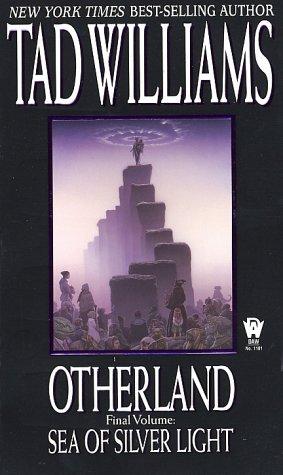MironLiest reviewed Sea of Silver Light by Tad Williams (Otherland, #4)
Not bad at all, but could have been much better
3 stars
After a rather perfunctory first book and two carefully constructed middle books, this last one is much less stringent. Williams really likes to talk, and can fill hundreds of pages with branches that serve no real purpose other than establishing (or maintaining) atmosphere. For the first three books, this was very apparent, but worked fairly well, especially in his long and empathic descriptions of fascinating worlds.
Here, however, he apparently found out during writing that he didn't have much story left, so a large part feels empty, with people wandering from one world to the next, only to find that they need to go somewhere else entirely. He starts inventing more obstacles that are sluggishly resolved, just to present more of less the same situation in the final quarter as in the beginning of this volume.
Strangely, that last quarter – starting around chapter forty, in the middle of the …
After a rather perfunctory first book and two carefully constructed middle books, this last one is much less stringent. Williams really likes to talk, and can fill hundreds of pages with branches that serve no real purpose other than establishing (or maintaining) atmosphere. For the first three books, this was very apparent, but worked fairly well, especially in his long and empathic descriptions of fascinating worlds.
Here, however, he apparently found out during writing that he didn't have much story left, so a large part feels empty, with people wandering from one world to the next, only to find that they need to go somewhere else entirely. He starts inventing more obstacles that are sluggishly resolved, just to present more of less the same situation in the final quarter as in the beginning of this volume.
Strangely, that last quarter – starting around chapter forty, in the middle of the third part of the book – has a completely different narrative style than anything before. There are now sensationalist cliffhangers for almost every section along the lines of̈́ "he couldn't believe what he saw next". This makes for a reasonably entertaining read, but feels a bit out of place after the 2000 pages that came before.
After the resolution there are still 80 pages left that are spent with a sprawling monologue to explain everything that hadn't been explained before, and finally an unending series of treacly "perfect" happy-end scenes that feel a lot like the ending of the Lord of the Rings movies.
In the end, it's a disappointing conclusion to a well-written, if too long by half, saga that manages to hold everything together just enough to avoid being irritating. Not bad at all, but it could have been much better.

